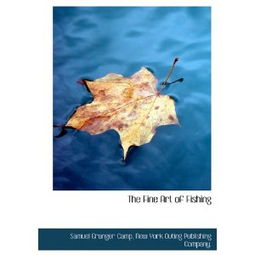Content:
Fishing over mountains can be an exhilarating yet challenging experience for anglers. The rugged terrain, varying weather conditions, and diverse aquatic life make it a unique adventure. Whether you're planning a weekend getaway or an extended wilderness trip, mastering the art of fishing over mountains requires a blend of skill, preparation, and adaptability. Here are some essential techniques to help you become a proficient angler in the mountains.
Research the Area
Before setting out on your mountain fishing expedition, it's crucial to research the area thoroughly. Understand the local geography, climate, and fish species. This knowledge will help you choose the right gear, baits, and techniques for the specific environment.
1 Topography: Study the topography of the mountainous area to identify potential fishing spots. Look for areas where streams or rivers flow, as these are often rich in fish. Pay attention to waterfalls, pools, and rocky outcrops, as these can be prime fishing locations.
2 Climate: Mountain regions can experience extreme weather conditions. Check the weather forecast and plan your trip accordingly. Be prepared for sudden changes in temperature and precipitation.
3 Fish Species: Research the fish species that inhabit the mountainous waters. Different species may require different baits and techniques. For example, trout are common in mountain streams, while bass and catfish may be found in larger rivers.
Gear Selection
Choosing the right gear is essential for a successful mountain fishing trip. Here are some key considerations:
1 Rod and Reel: Select a lightweight, durable rod and reel suitable for the fish species you plan to catch. A telescopic rod is often a good choice for its versatility and ease of transport.
2 Line: Use a monofilament line with a breaking strength that matches the fish you're targeting. Thinner lines are more sensitive and allow for better hooksets, but they are also more susceptible to breakage.
3 Lures and Baits: Bring a variety of lures and baits to cover different fishing scenarios. Soft plastics, spinners, and flies are popular choices for mountain fishing.
Techniques for Mountain Fishing
Once you have the right gear, it's time to learn the techniques:
1 Stream Fishing: Mountain streams can be challenging to fish due to their fast currents. To combat this, use a nymph rig or a streamer rig. Cast upstream and let the current carry your lure or bait to the fish.
2 Stillwater Fishing: Larger mountain lakes and reservoirs offer stillwater fishing opportunities. Cast to the edges of weed beds, drop-offs, or around submerged structures. Use a variety of lures and baits to entice fish.
3 Fly Fishing: Fly fishing is a popular method in mountainous areas. Use a fly rod and appropriate flies to mimic natural insects. Learn to cast accurately and read the water to find fish-holding areas.
Safety and Comfort
Mountain fishing can be physically demanding. Here are some tips to ensure your safety and comfort:
1 Proper Clothing: Dress in layers to adapt to changing temperatures. Wear waterproof and breathable materials, and don't forget a hat, gloves, and sunglasses.
2 Footwear: Choose sturdy, waterproof boots with good traction to navigate the rugged terrain and slippery streambeds.
3 First Aid Kit: Carry a first aid kit with essentials such as bandages, antiseptic wipes, and pain relievers. Also, include a whistle or signaling device for emergencies.

4 Navigation: Bring a map and compass or a GPS device to navigate the mountainous terrain. Familiarize yourself with the area's landmarks and potential hazards.
Leave No Trace
When fishing in mountainous areas, it's important to practice Leave No Trace principles to minimize your impact on the environment. This includes disposing of trash properly, leaving natural features undisturbed, and respecting wildlife.
In conclusion, fishing over mountains requires a combination of knowledge, skill, and preparation. By researching the area, selecting the right gear, mastering the techniques, and prioritizing safety and comfort, you'll be well on your way to a successful mountain fishing adventure. Remember to respect the natural beauty of these environments and leave them better than you found them. Happy fishing!












